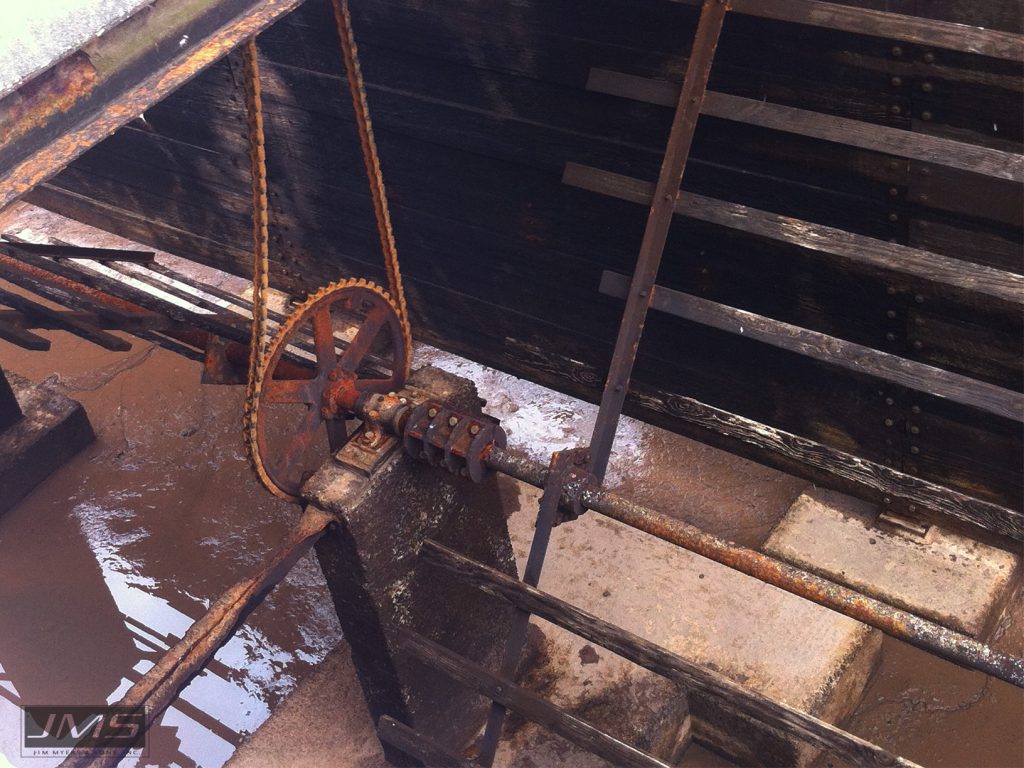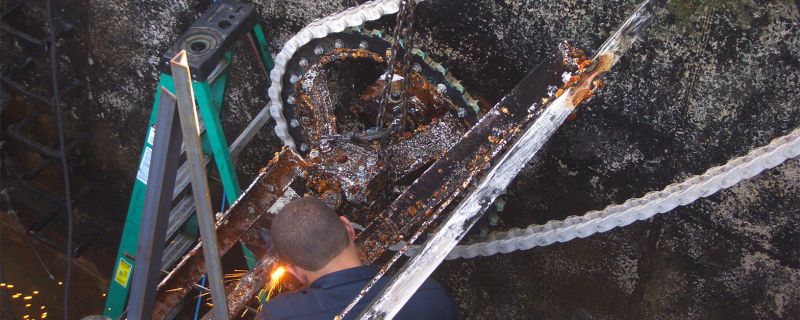A couple of months ago, we put together an article on Flocculator Maintenance, outlining the importance of routine flocculator maintenance. The correct maintenance on your flocculator can result in decades of useful life. To add to those comments, we would now like to speak about Typical Wear Parts for the Horizontal Paddle Wheel Flocculator (HPWF). The HPWF is a key piece of equipment in a surface water treatment plant. These plants run 24 hours a day, are generally exposed to the elements, and handle incoming water that can sometimes be very abrasive in nature. Each of these influences can lead to wear on equipment. Loss of use of the Flocculator equipment in even one basin means that this basin is idle until the next shutdown, making the other basins work harder, possibly resulting in lower solids removal.
Generally, there are signs that equipment is experiencing excessive wear, which can be observed by the keen operator. Most of the moving parts in the system are below the water level and cannot be seen unless the basin is down and drained.
Typical wear parts for a horizontal paddle wheel flocculator to inspect while a basin is down:
- Bearing liners
- Chain and sprockets
- Shafting that can be worn by abrasives
- Drive units/gear boxes can experience leakage and need to be replaced
- FRP paddles

There are a few things to look and listen for, however, these are:
- Unusual sounds such as an abnormal squeal, or possibly a change in the sound coming from the drive units, or a binding sound.
- Look for any leaks at the stuffing box, which could mean rope or packing wear.
- Also, look for leaks at any of the drive units.
Plants should keep a running inventory of the above items to reduce lead times in case of an emergency, or your equipment supplier can generally have replacement parts there fairly quickly. Basin drainage is usually scheduled, and if there are any parts that have been identified as failing beforehand, these can be ordered and on-hand for the maintenance outage. If deteriorated parts have not been identified before the outage, it is important to examine the whole system thoroughly including bearing liners, chains and sprockets, shafts, fasteners, and all motors to stay ahead of the game.
Troy has been with JMS for 4 years serving as an Aftermarket Parts Specialist. Having performed field service startups and repair services on new and existing equipment has given him experience with all types of JMS equipment, including flocculators, material handling, and actuators. Prior to coming to JMS, Troy was a warehouse manager and inside salesperson for a company supplying Hydraulic, Pneumatic & Power Transmission Components.

